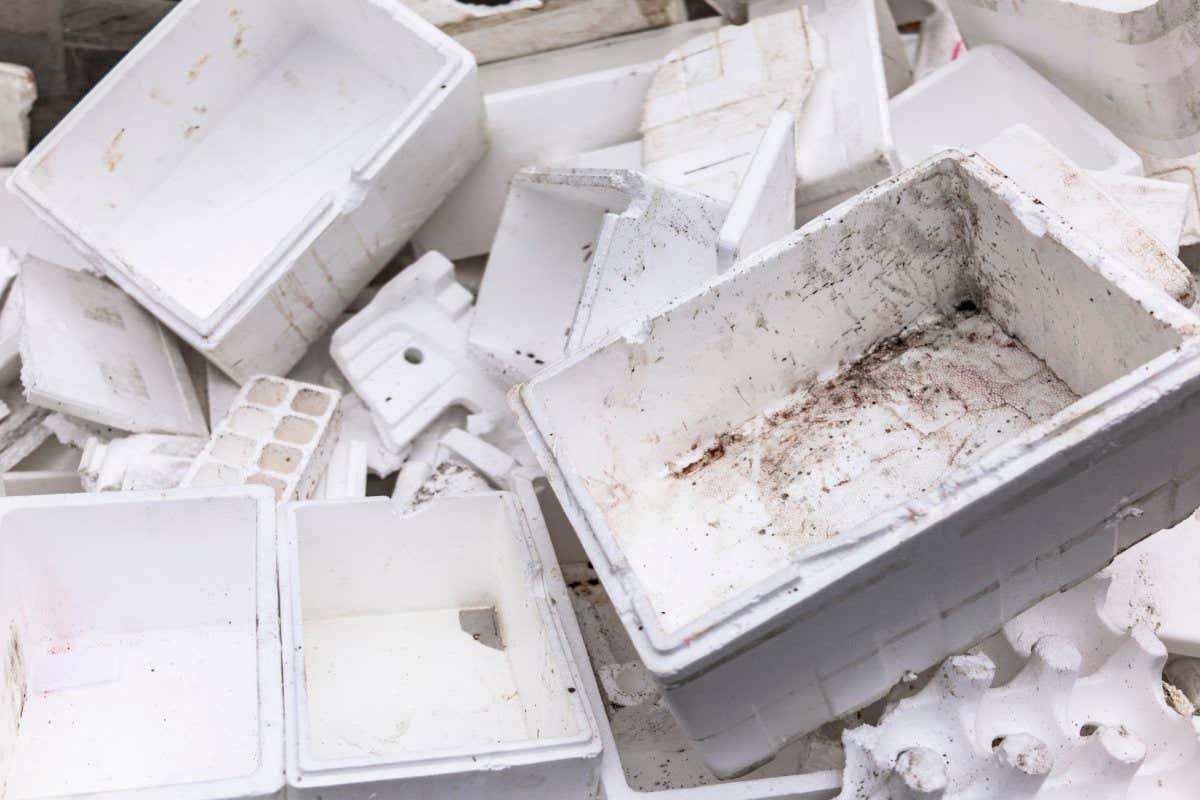Engineers discover novel solutions for recycling stubborn plastic material

By Faridat Salifu
A group of chemical engineers has developed a recycling solutions for stubborn packaging materials such as polystyrene and others.
The discovery promises to enhance tackling environmental and economic challenges associated with stubborn packaging materials.
The breakthrough technique was developed by researchers at the University of Bath in the United Kingdom and Worcester Polytechnic Institute in the US. lt promises to transform the recycling landscape by offering an economically viable and energy-efficient process.
According to the researchers, environmental benefits of this new method are substantial. They emphasized that the cost to reduce carbon emissions through this process is approximately $1.5 per ton of CO2, significantly lower than many existing recycling methods.
In addition, the researchers advocate for policies that incentivize consumers to recycle polystyrene or divert it from landfills. Such policies could play a crucial role in increasing recycling rates, addressing a significant waste management challenge.
It was recalled that this is not the only innovative approach in polystyrene recycling. Previous research led by Dr. Xiaodan Li and Professor Dirk Tischler explored biotechnological methods.
Their study, published in Nature Chemistry, identified a bacterial enzyme capable of degrading styrene, potentially paving the way for biological recycling methods.
Tischler noted, “A new biological function of heme in proteins has been comprehensively described,” highlighting the potential of biotechnological advancements in sustainable plastics.
The collaborative team has introduced a chemical process known as pyrolysis to break down polystyrene into its fundamental components.
This method enhances recycling efficiency while proving to be both cost-effective and energy-efficient.
Dr. Bernardo Castro-Dominguez, a senior lecturer in chemical engineering at the University of Bath, explains, “Chemical recycling techniques are a major focus within chemical engineering right now, and cost- and energy-efficient ways to breakdown plastics to their primary building blocks such as polystyrene are urgently needed.”
He added, “Less than 5% of polystyrene is recycled at present—our work shows that as much as 60% of all polystyrene used today could be replaced by chemically recycled styrene.”
Pyrolysis involves subjecting polystyrene to extremely high temperatures in an oxygen-free environment, preventing ignition and breaking down the material into monomers. These monomers are then purified and reconstituted into new polystyrene.
Michael Timko, professor of chemical engineering at WPI, underscores the potential impact, stating, “Our analysis finds polystyrene to be an ideal candidate for a chemical recycling process. Surprisingly, the process is energetically efficient and potentially economically competitive.”
He further noted that investing in this process could reduce emissions as effectively as simple energy conservation measures.
Traditional recycling methods for polystyrene involve heating, which degrades the material over time, compromising its strength and flexibility.
The bulkiness of polystyrene also poses logistical challenges, leading to high transportation costs and limited recycling facility acceptance.
Consequently, a mere fraction of polystyrene is recycled today. The new process includes a pyrolysis reactor, a heat exchanger, and two distillation columns.
These components work together to decompose polystyrene into ‘monomer grade’ styrene, which can be reformed into new polystyrene, and ‘light’ and ‘heavy’ petroleum-like by-products that can be reused in various other applications.
The efficiency of this process is notable, with a yield of 60 percent, meaning that from one kilogram of used polystyrene, approximately 600 grams of 99 percent pure monomer grade styrene can be recovered and used to create new polystyrene.
